In the first part of the ‘Highlights of 2023’ series, we give our readers a glance of 3 most visited posts about scientific publications in this year.
Continue readingHighlights of 2023 (Part 1)
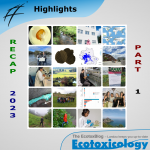


In the first part of the ‘Highlights of 2023’ series, we give our readers a glance of 3 most visited posts about scientific publications in this year.
Continue reading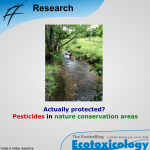
In this blogpost, Jakob Wolfram talks about his recent study “Pesticide occurrence in protected surface waters in nature conservation areas of Germany”. In the study, he analyzed millions of records detailing the occurrence of pesticides in surface waters. The study showed that pesticides frequently occur in strictly protected nature conservation areas and could jeopardize their ecological integrity.
Continue reading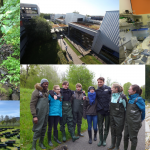
The application for the Master in Environmental Pollution Management (Ecotoxicology) for the winter semester 22/23 at the University Landau is now open. Investigate the potential impact of chemical stressors on ecosystems and how to effectively manage environmental risks.
Continue reading
In the third installment of the ‘Year in Review’ series, we present our readers a glimpse of the last lot of most visited posts in the year 2021.
Continue reading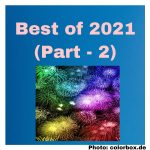
In the second installment of the ‘Year in Review’ series, we give our readers a glimpse of 3 most visited posts in the year 2021.
Continue reading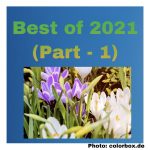
In this first installment of the ‘Year in Review’ series, we would like to give our readers a glimpse of some of the best blogposts of the year 2021.
Continue reading
In this post, Carsten Brühl and Jakob Wolfram welcome the cohort 2021 of the Master’s in Environmental Pollution Management (Ecotoxicology) here in Landau. Eleven students will study how environmental stressors can adversely impact our environments and how these risks can be alleviated.
Continue reading
Proper design of your figures is an important step towards successful science communication. In this blogpost, I want to provide you with the basics of colors and how to correctly use colors for plotting your results.
Continue reading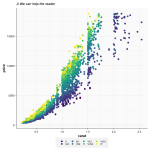
Creating and exporting figures in R can be tedious for beginners or intermediates. Therefore, I created a ggplot2 template for figures that follows the formatting requirements of the Science Magazine.
Continue reading
Increased efficacy of pesticides comes along with decreased applied amounts in agriculture – but does this translate to lower risks to non-target species? The answer is NO, if you ask scientists at the University of Koblenz-Landau who recently published a study in Science assessing changes in the use of 381 pesticides and toxicity to eight non-target species groups over the course of 25 years. In our blog, the authors explain the shifts in applied pesticide toxicity they found, and which species are increasingly at risk.
Continue reading